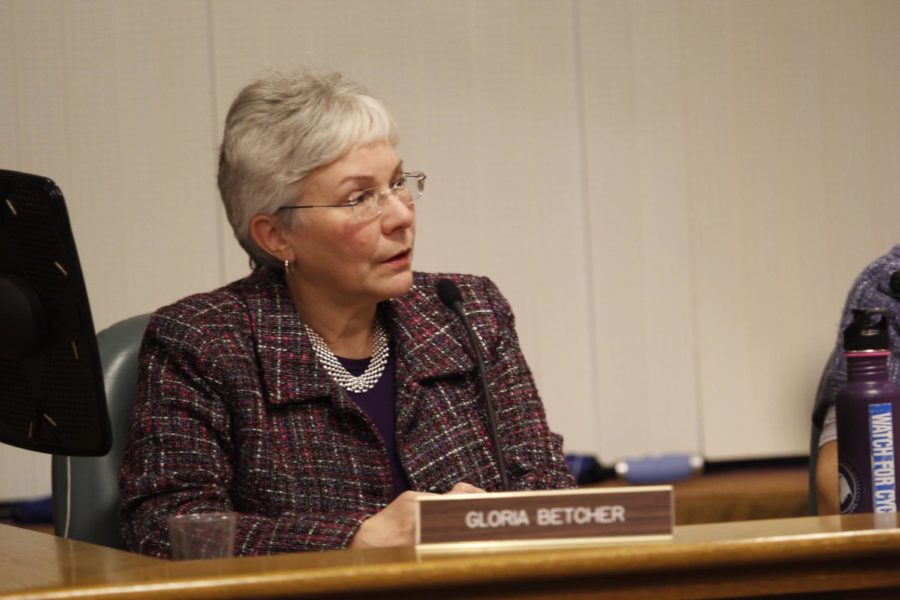- News
- News / Politics And Administration
- News / Politics And Administration / Campus
- News / Politics And Administration / City
City council hears report on occupancy ordinances, complaints from SCAN regarding students
September 12, 2017
With a Jan. 1, 2018 deadline looming, the city of Ames must make a decision within the coming months on whether or not to implement a new ordinance that would restrict occupancy within rental units.
At the city council meeting Tuesday, city leaders and community members held a discussion on the issues facing housing in Ames as well as possible solutions to address the issue.
Currently, the city of Ames limits the number of people in rental units to one family or three unrelated people.
Due to a state law passed during the most recent legislative cycle, the ordinance will be moot after Jan. 1, 2018 when the state law enforces that cities may not restrict occupancy based on familial or non-familial status.
The city has conducted outreach to better understand the next steps, including holding a workshop in August asking landlords, property managers and neighborhood associations what type of ordinance—if any at all—they feel the city should enact.
Part of Tuesday’s meeting served as an opportunity for city staff to introduce a report on possible solutions suggesting proactive property and nuisance enforcement, as well as rental concentration.
The South Campus Area Neighborhood Association, better recognized as SCAN, were also highly vocal during Tuesday’s meeting with a strong plea: to restrict occupancy in rental units based on the number of adults, or more preferably, students.
With a self-reported 40 percent of rental-occupied units within their neighborhood, SCAN President Barbara Pleasants addressed several of the issues she and her neighbors have faced in living near a mass amount of students.
“The problem is way bigger than you folks realized,” Pleasants said.
She provided anecdotes of student rentals being over occupied, loud and unkempt, citing an incident just this weekend where a student urinated in the front lawn of one of the houses in the neighborhood.
“Our neighborhood has changed remarkably, if this continues, it will be a student slum,” Pleasants said.
SCAN encouraged the council to enact a moratorium on accepting additional rental housing permits until the city decides on what approach they’d prefer to take when restricting occupancy.
In reviewing the report, the city staff focused less on the ordinance aspect of the issue but rather the proactive enforcement of properties and whether the city should enact some form of rental concentration.
Ames Fire Chief Shawn Bayouth said that currently, the city is only reactive to violations.
“Right now, we have two inspectors responsible for about 13,000 units throughout the city of Ames,” Bayouth said. “They inspect with a frequency of one to every four years, based on how many violations they find and compliance rate.
“If we were to increase enforcement, we would anticipate the workload to increase by about 25 percent.”
Bayouth suggested that should the city decide to be more proactive in its enforcement, an additional housing inspector would need to be hired.
Kelly Diekmann, the housing and planning director, discussed the rental concentration aspect of the report—in which he examined other cities and neighborhoods based on how they have dealt with rentals.
“The third issue directed at us was spacing…single-family dwellings occupied and what other communities have done to see what over concentration might look like,” Diekmann said.
Diekmann provided four options, which would put the responsibility to restrict the number of rental units to be decided by the “blocks,” individual property owners, the council or the distance between properties.
“One thing that we did find, is in some communities, most people didn’t regulate just rentals…they regulated what was defined as a student home…in that model, if you are not occupied by a student, there is no restriction on rental concentration,” Diekmann said.
To close the discussion, the council reviewed the four issues prompted by the meeting, including enforcement, the possibility of a moratorium, occupancy and concentration.
Robert Bingham, ex officio student liaison, was concerned about singling out students in restricting occupancy.
“Is there a way we can limit by number of students per bedroom?” Bingham said.
The council debated putting the restriction on the students, instead of ordinance language restricting adults, and what issues that might cause for non-traditional families attempting to rent.
Councilwoman Gloria Betcher countered this.
“I think that the facts on the ground are…that families are not renting the houses. They’re being rented by students,” Betcher said. “So, we don’t have family rentals.”
On the moratorium, Councilman Peter Orazem and Mayor Ann Campbell expressed preference to the temporary solution so that the city could have more time to enact a plan for rental concentration.
“One of the things we have to ask builders to do is increase the density of apartments in places that decrease the pressure on neighborhoods,” Orazem said.
Councilman Tim Gartin motioned that the staff prepare a moratorium in Ames for rental occupancy units for single-family and duplex homes.

















